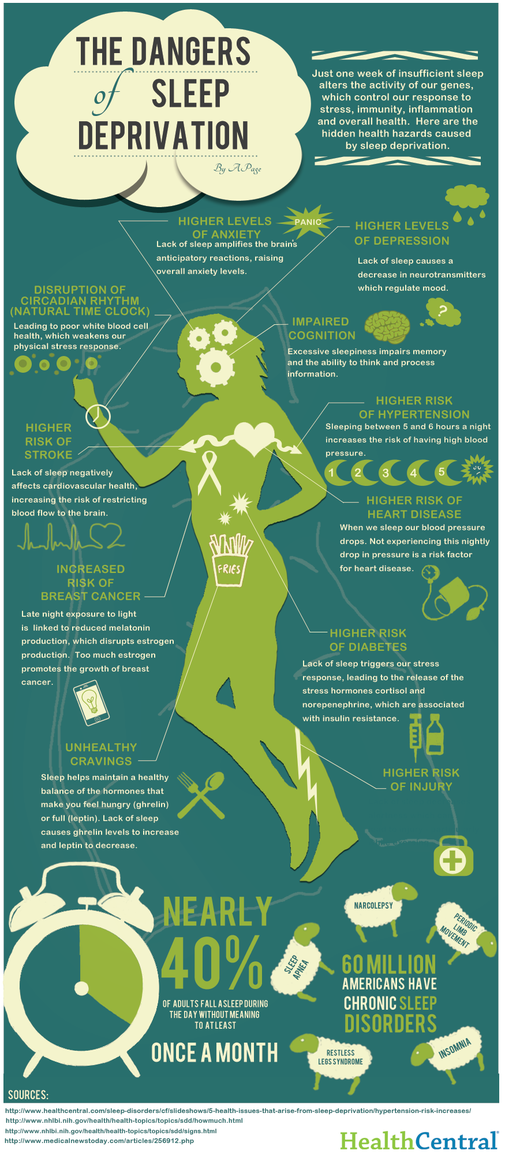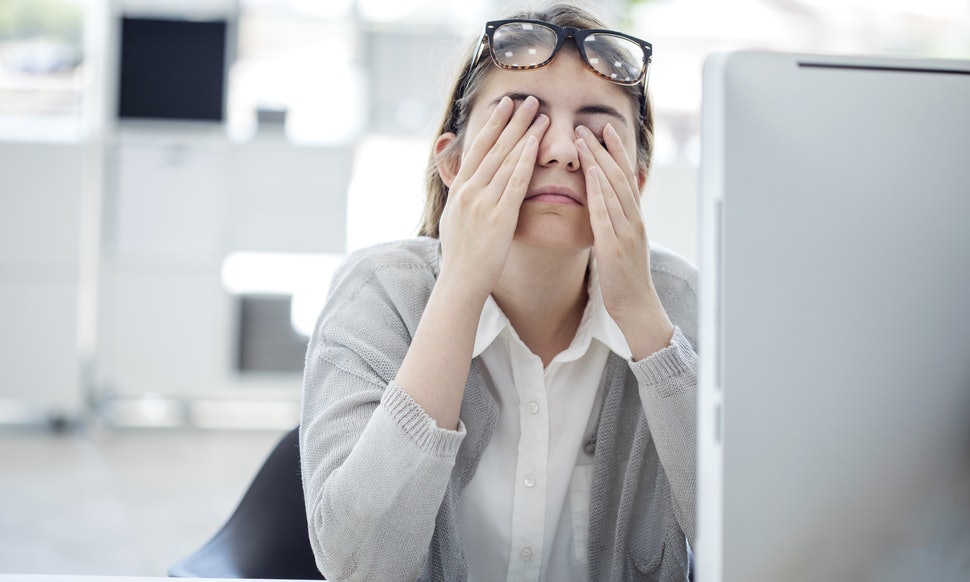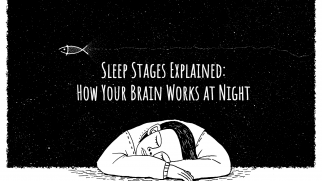How Long You Can Go Without Sleep Before Dying and Why You Shouldn’t Test Yourself
by | Last UpdatedIn the 21st century, we have a rather tense relationship with sleep. Even though we understand its importance, 35% of people in the US don’t get enough of sleep.
And while a couple of lost hours every night can make a huge difference in your life and well-being, days without sleep pose an impressive threat.
But for how many days can one remain awake and survive? Let’s find out what such severe sleep deprivation can do to one’s health, both emotional and physical.

Quick Links
Contents
- Quick Links
- Why Is Sleep Deprivation Dangerous?
- 24 Hours Without Sleep
- 36 Hours Without Sleep
- 48 Hours Without Sleep
- 72 Hours Without Sleep
- 72+ Hours Without Sleep (Four Days and More)
- For How Long Can You Stay Awake?
- Can Sleep Deprivation Kill You?
- No Sleep as Torture: Yes, It Is That Dangerous
- When Sleep Deprivation Isn’t a Personal Choice
Why Is Sleep Deprivation Dangerous?
Probably, everyone realizes that sleep is important. It gives us a chance to rest and restore every day, allowing us to go on with our lives, dreams, and everyday tasks. But what makes sleep such a huge contributing factor to our well-being? And why is sleep deprivation so dangerous for our health?
The thing is, a good quality sleep is crucial for several aspects of our health and body. And when we constantly don’t get enough of it, those aspects become affected. Here are the most common potential dangers sleep deprivation can cause:
- difficulty concentrating or thinking clearly, memory issues;
- mood changes, increased irritability, anxiety, or even depression;
- weight gain due to higher sugar levels;
- increased risk of heart disease, high blood pressure, stroke, diabetes, and kidney disease;
- weakened immune system;
- drowsiness during the day, which can lead to accidents;
- lower libido due to the drop in certain hormone levels;
- impulsive behavior;
- difficulty controlling one’s emotions or coping with stress.
The list can go on, but these are the most common consequences of sleep deprivation. Of course, more severe cases are possible too. We are talking about prolonged sleep abstinence. But for how long can you go without sleep exactly? If it’s so important, can sleep deprivation kill you? Let’s take a closer look at this matter.
“The science of sleep is relatively young. We don’t know everything about this phenomenon, but there’s one thing we know for sure: it isn’t wise to neglect one’s sleep.”

24 Hours Without Sleep
You must know that college kids often don’t get enough sleep. If you are or were a student, you’ve probably pulled an all-nighter at least once during your college years, which confirms that a person can stay awake for 24 hours quite easily. So, you might think it’s not a big deal. But do you know what the consequences are?
Here’s the deal:
A couple of things happen to you when you go without sleep for 24 hours. First, your memory and brain function will be affected. You will find it harder to concentrate, recall things, and maintain a line of thought. It might become harder for you to reach decisions. You will experience a lack of good judgment and a decreased attention span.
And it gets worse:
After just 24 hours of being awake, you may start experiencing mood swings or increased irritability. The levels of cortisol (stress hormone) will rise in your body, which means it might be hard for you to control your emotions and cope with stress.
Your physical state will be affected as well. Your hand-eye coordination may become impaired, meaning you might experience difficulties dealing with regular day-to-day tasks. Additionally, you might also have an increased blood pressure, which can lead to an increased heart rate (especially if you naturally have higher blood pressure) and, when experienced regularly, to potential heart issues.
But most importantly, you will become drowsy, and that can lead to very serious consequences. There are thousands of cases of car crashes in such a state. A driver may be returning home after a night shift, or a student may be headed to a drive-through to get a nice nutritious breakfast after studying all night. But in a state of drowsiness, such road trips often end in serious accidents.
“An insufficient amount of sleep affects your brain functions first. It becomes hard to concentrate and remember information. Additionally, the lack of sleep can even affect your problem-solving abilities, which, consequently, can influence your daily life.”
You see now that even 24 hours without sleep can be harmful to your well-being (or even lethal). So, when asking a question “How long can you go without sleep before dying?”, the simple answer is 24 hours. If you take a risk to drive when being sleep-deprived.
36 Hours Without Sleep
Can 12 more hours do some extra damage? Yes, definitely. After spending 36 hours without sleep, the impact on your physical and mental state only enhances. Here’s what might happen:
- You might start experiencing a slight hormonal imbalance, which will mess with your emotions.
- Again, high blood pressure levels are common for such a long sleep deprivation, which also increases the risk of cardiovascular disease.
- You may suffer from memory lapses, which means you will not be able to remember what happened during these hours of sleep deprivation.
- You might experience an extreme loss of motivation. So, if you spent these 36 hours getting ready for an exam, in the end, you won’t have the mental power to keep studying or to even get on with the actual exam.
What’s the bottom line? All the symptoms one may start experiencing after 24 hours without sleep will only be enhanced after 36 consecutive hours of wakefulness.
48 Hours Without Sleep
A person can stay awake for 2 days, but their health will definitely be impacted. And while all the previous symptoms can worsen, the new ones will appear as well.
Now, the first thing you might experience after going 2 days without sleep is a phenomenon called “microsleeps”. This is the body’s way to get at least some rest and compensate for all those sleepless hours it had to withstand. Microsleeps usually last for brief moments (1-30 seconds, typically) and appear throughout the day. They are similar to blackouts – that is, when a person is not really aware of what is going on. Microsleeps can appear regardless of the activity a person is occupied with, which makes them extremely dangerous. Additionally, they cause disorientation, which may also interfere with one’s daily life.
So, microsleeps serve as a way for your body to rest for at least short periods of time.
Here’s the kicker, though:
It’s also your body’s way of telling you that it’s time to get some sleep.
Additionally, your body may lower its temperature. This also serves as a signal that you need rest. You see, being sleep-deprived, your body simply cannot regulate its temperatures properly.
Another thing that happens when a person is so sleep-deprived is the reduction of metabolism. Reduced metabolism means a decreased ability to metabolize glucose properly, which can lead to weight gain and even diabetes in the long run.
And, just like after 24 hours of wakefulness, your immune system becomes weaker with every hour you stay awake. This means you will be more susceptible to bacteria and viruses when being sleep-deprived.
72 Hours Without Sleep
After 3 days without sleep, your body is definitely going to be exhausted. But your mind will suffer even more.
First of all, it will be extremely hard for your brain to keep it together. Motivation, concentration, and perception will be severely impaired. Even trying to keep up with the simplest conversations would be a difficult task.
It gets worse:
3 days without sleep create a favorable condition for hallucinations. In fact, hallucinations appear in around 80% of cases. This happens because of the chemical imbalance in the brain caused by the absence of rest.
“Some people deprive themselves of sleep voluntarily in order to get more things done, while others prefer a polyphasic type of sleep for the same purpose. Polyphasic sleep involves multiple short naps during the day, so a person remains productive but gets the needed amount of sleep (in total). Still, this method has not been proved healthy or safe. Just like pulling the all-nighters to get some things done.”
72+ Hours Without Sleep (Four Days and More)
I hope you’ve come this far in this article out of pure curiosity…
More than 72 hours without sleep is when a person would experience serious neurological problems. Hallucinations are very common at this stage. Some people may also develop paranoia and, in extremely severe cases, dementia.
An increased blood pressure and potential heart issues are common for this stage of sleep deprivation. Even though the microsleeps are meant to help your body get some rest, your health will be in a really bad condition.
Additionally, the concentration problems will only worsen. At this point, it is common for people to have difficulty forming sentences, communicating, and understanding other people’s speech.
For How Long Can You Stay Awake?
Now, you may be wondering for how many days you can go without sleep (theoretically, hopefully, because trying to test yourself will not do you any good). The current record holder is Randy Gardner, who managed to stay awake for around 11 days (264 hours) in 1965 as a part of his school science fair project.
But here’s the deal:
There’s no exact number to signify how many days a person can stay awake. Why? Because it’s really hard to define the fact of one’s wakefulness.
Let me explain.
When being sleep deprived, you cannot go against your body, no matter how hard you try. Your brain and body will do everything in their power to rest, at least for short moments. And that’s when microsleeps kick in. Even the record holder, Randy Gardner, experienced them, which means he was not fully awake 100% of the time. Besides, sleep deprivation causes a person to be cognitively dysfunctional, which does not really fit into the description of a wakeful person.
“Microsleeps oftentimes come and go at any point of your day. Despite the activity a person is engaged with, he or she might still experience a microsleep. They may find themselves staring blankly into the distance without even realizing what is going on around them. That’s how the brain “shuts” itself off for a brief moment to get some rest.”
Can Sleep Deprivation Kill You?

This may sound unconvincing, but there’s no actual record of a human death that was caused by sleep deprivation. One of the most famous cases concerns a Chinese man who died after staying awake for 11 days to watch the European Cup. It is said that he was working during the day and watching the games during the night (due to the time difference with China). However, there were some extra contributive factors (like cigarettes and alcohol), which means scientists cannot link his death exclusively to sleep deprivation.
Now, we can look at lab experiments to try to answer the question “Can sleep deprivation kill you?”
In the 80s, Allan Rechtschaffen of the University of Chicago conducted research on sleep deprivation. The study involved rats that were placed on discs above a tray of water. The brain waves of the rats were monitored, and every time they were starting to doze off, the disks started to rotate, forcing the poor animals to walk in the opposite direction and, thus, keeping them awake. In about a month, all rats died. However, it’s still hard to say for sure that sleep deprivation was the main cause of their death. Scientists still wonder if it was stress, sleep loss, temperature deregulation, or fast weight loss that killed those rats.
One thing we can be sure of:
Even if it was stress or weight loss, it was caused by sleep deprivation, meaning this condition is extremely dangerous anyway.
No Sleep as Torture: Yes, It Is That Dangerous
You already know how bad sleep deprivation can be for human health. But can you believe that it was used as a torture method?
The whole thing probably began in the 16th century in Scotland when witch hunting was a common practice. Before actually burning the “witch”, people needed a confession. And that’s when sleep deprivation was used. Calling it “waking the witch”, witch hunters kept women awake for days, which, naturally, caused them to hallucinate and confess their “crimes”.
Such a torture method later became popular during World War II in Japanese Prisoner of War camps. The same form of torture was used by the British Army, the Irish Republican Army, and the US military during the war. The Soviet Gulag camps, too, implemented sleep deprivation to torture and control the prisoners.
Believe it or not, sleep deprivation used as torture is not in the past yet. Well, not in the distant past, at least. For instance, it was still used in 2003 by CIA in prison torture rooms. There’s also a rather well-known case of sleep deprivation used to “make a prisoner talk” in Guantanamo (Omar Khadr’s case).
Unlike lab sleep deprivation experiments, when being used as a part of torture, sleep deprivation is usually accompanied by other methods like starvation, beating, low temperatures, etc. And that’s when it can really kill you.
“A few days straight without sleep don’t seem too harsh, but the consequences are quite severe, to be honest. You may experience hallucinations, inability to concentrate, and even paranoia. Thankfully, these consequences can be eliminated by simply getting enough rest. Once you return to the normal schedule and start getting enough sleep, your body and brain will restore their functions.”
When Sleep Deprivation Isn’t a Personal Choice
Sometimes, you jsut can’t fall asleep or can’t stay asleep for the whole night, and it isn’t your choice. Certain circumstances and conditions can force a person to stay awake, no matter how hard they may try to (or want to) get some rest. They include:
- Fatal Familial Insomnia. An extremely rare condition, FFI causes severe sleep deprivation, which results in organ failure and, consequently, death.
- Morvan’s Syndrome. Its symptoms include inability to sleep for long periods of time (patients usually get very little amounts of rest), sweating, muscle twitching, and weight loss.
- Sleep apnea. This condition is relatively common and implies problems with breathing. Sleep apnea patients have a restricted airflow because of the blocked parts of the airways. This causes them to stop breathing during the night and makes the brain wake the body up to restore the breathing function. This happens multiple times during the night and drastically decreases one’s sleep quality.
- Restless legs syndrome. Another widespread condition, restless legs syndrome is a nervous system disorder. It creates an unpleasant feeling of twitching or tingling in one’s legs, causing a constant need to reposition them. This, consequently, prevents a person from falling asleep (or staying asleep during the night) and may lead to sleep deprivation.
So, do you believe that the lack of sleep can kill you? What was the longest you ever stayed awake? Let us know in the comments below!




No Comments